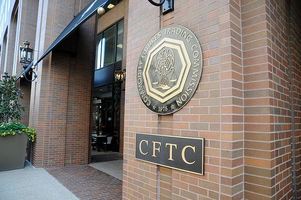Covered bonds hit in US as CFTC spurns exemption plea
Issuers of covered bonds with guarantor entities are facing burdensome new regulatory compliance that could set back Yankee issuance after the Commodity Futures Trading Commission (CFTC) left covered bonds out of an exemption granted some ABS yesterday (Thursday).
 The industry, led by the American Securitization Forum, had been lobbying for guarantor entities used in covered bonds, alongside “securitisation vehicles”, to be granted an exemption from being brought under CFTC regulation as “commodity pools”.
The industry, led by the American Securitization Forum, had been lobbying for guarantor entities used in covered bonds, alongside “securitisation vehicles”, to be granted an exemption from being brought under CFTC regulation as “commodity pools”.
But although the CFTC granted some exemptions for ABS, covered bonds were not exempted from compliance. This means that issuers of covered bonds will have to register as commodity pool operators (CPOs) in the US.
“The need to register as a CPO was really what people were concerned about,” said Lewis Cohen, partner at Clifford Chance. “In yesterday’s exemptions there are a lot of nuances for asset-backed issuers but for covered bonds, they have come out and said: you are not included.”
Market participants had been concerned about the prospect of a heightened regulatory burden and uncertainty about what being regulated by the CFTC would entail.
“If they’re not exempt the question is then: what is the body of rulemaking that is going to apply and can you structure around that or is to be complied with?” said Ralph Daloisio, managing director, Natixis. “At the very least it’s another layer of oversight and burden, which can produce conflict simply because there is yet another regulator on the scene.
“And if the regulator isn’t in harmony with other regulators then the hardship can multiply.”
Clifford Chance’s Cohen pointed out that classification of covered bond guarantors as commodity pools will further increase the regulatory burden because such pools are considered “covered funds” for the purposes of the Volcker Rule, which would impose additional limits.
At a time when the Yankee covered bond market seems to be solidly maturing, moving from one landmark trade to the next, US-targeted issuance could be affected by the CFTC’s stance, according to industry participants.
The Australian Securitisation Forum, for example, last month warned that extraterritorial implications of an overly broad interpretation of commodity pools could have negative effects.
“If securitisation trusts or guarantor entities used in structured covered bond transactions are deemed to be commodity pools,” it said, “non-US securitisers and covered bond issuers seeking to access the US investor base could inadvertently find themselves subject to regulation as commodity pool operators, as well as being subject to potential Volcker Rule implications.
“At a minimum, this could discourage cross-border activity.”
The relevant CFTC regulation came into effect today (Friday 12 October). The regulator has said that issuers have until the end of the year for compliance, although the Securities & Exchange Commission has indicated that issuers of public deals do not have such leeway.
The CFTC interpretation letter to the American Securitization Forum can be found here.

